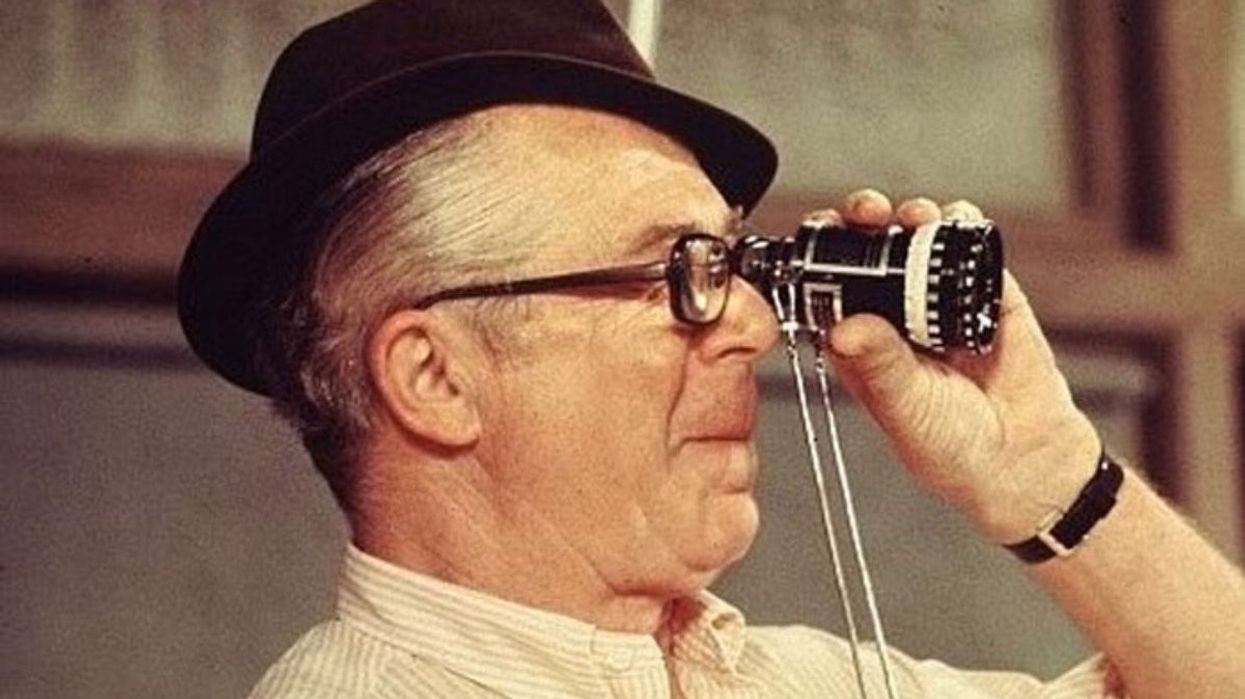Watch: Is Billy Wilder the Best Screenwriter of All Time?
There are plenty of amazing storytellers working in film, so what makes Billy Wilder so special?

What makes a screenwriter good? Is it their ability to structure an effective and efficient story, to write snappy dialogue, or to build dimensional characters? Is it the quality of being an unpredictable, multifaceted, transgressive risk-taker? Or, is it all about being entertaining to as many movie lovers as possible?
I mean, it depends on who you ask, but for the most part, I think people would say the answer is—all of those things rolled into one supreme superwriter. But who possesses all of these qualities and quite certainly many, many more? Well, if Vulture's recent list of the 100 Best Screenwriters of All Time indicates anything it's that director, screenwriter, and all-around cinematic legend Billy Wilder does.
In this video essay, Sage Hyden of Just Write explores the many potential reasons why 40 of today's top screenwriters voted Wilder to be #1 on the list, from his versatility to his incredibly clever and economic storytelling.
Now, the debate about the best screenwriter could go on for the end of time, but there's no arguing that Wilder's work, at least the four films for which he's best known, are masterclasses in the art form.
I mean, only a writer with a skillset as vast as Wilder's could churn own masterpieces in four different genres:
- Double Indemnity : Film Noir
- Sunset Boulevard: Tragedy
- Some Like It Hot: Comedy
- The Apartment: Dramedy
He also seemed to possess the famed Lubitsch Touch, a quality that is as mysterious as it is coveted. Its definition varies among scholars and filmmakers, but according to Wilder, it was "the elegant use of the Superjoke," the ability to not only tell a joke but to also stack another joke on top of it to give the audience a laugh they didn't expect. Despite his focus on comedy, the thing Wilder seemed to admire most about Ernst Lubitsch's storytelling was his economy—his ability to do multiple things with a single joke, action, or line of dialogue. In fact, he may stuff all of those things into a single scene like a Russian nesting doll to produce laughter, empathy, and tension.
But perhaps Wilder's biggest strength as a writer is his ability to reveal the true humanity of his characters. In a time when the Hays Code was cracking down on profanity, nudity, and anything else that would "[lower] the moral standards of those who see [films]," the filmmaker's work was incredibly transgressive. And it wasn't just because of the content of his films, like two men dressing up as women or two people hatching a murder plan to collect on his life insurance, it was in his treatment of these individuals at the end of the story.
The Hays code strictly forbade filmmakers to create sympathy for violations of the law, but Wilder did it time and time again. In Double Indemnity, salesman and co-conspirator Walter Neff sits on his office floor bleeding from a gunshot wound only to be told by his friend and coworker Barton Keyes, who Neff has clearly betrayed, that he loves him (in so many words). In Some Like It Hot, after days of posing as a woman, Jerry comes clean with Osgood about who he really is, dashing his hopes of receiving a hefty divorce settlement should the two ever get married. But instead of tossing Jerry off the boat in a fit of understandable rage, Osgood simply says, "Nobody's perfect," a line that would later go down in history as one of the most charming, touching, empathetic pieces of dialogue in history.
And it's worth noting the parallels between Sugar and Joe's interaction moments before Osgood and Jerry's. Joe comes clean about his charade and emphatically tells Sugar to "go back to where the millionaires are," but instead of taking his advice, she doubles down and decides to stay with him.
Now, some would chalk this up to the poor decision-making of a "not very bright" individual, however, the interaction between Osgood and Jerry casts both of their exchanges in a much different light. Separate, the two couples may very well be seen as foolish and destined to fail, but together, both couples receive the blessing of Osgood's last line of dialogue. Nobody's perfect, not Jerry, Joe, Osgood, nor Sugar. None of us. And yet, we love and are loved.
Wilder managed to pack so much into not only that final scene in Some Like It Hot, but the final line as well. The economy and heart Wilder gave that scene, as well as countless others, is what makes him one of greatest screenwriters of all time.
Source: Just Write












